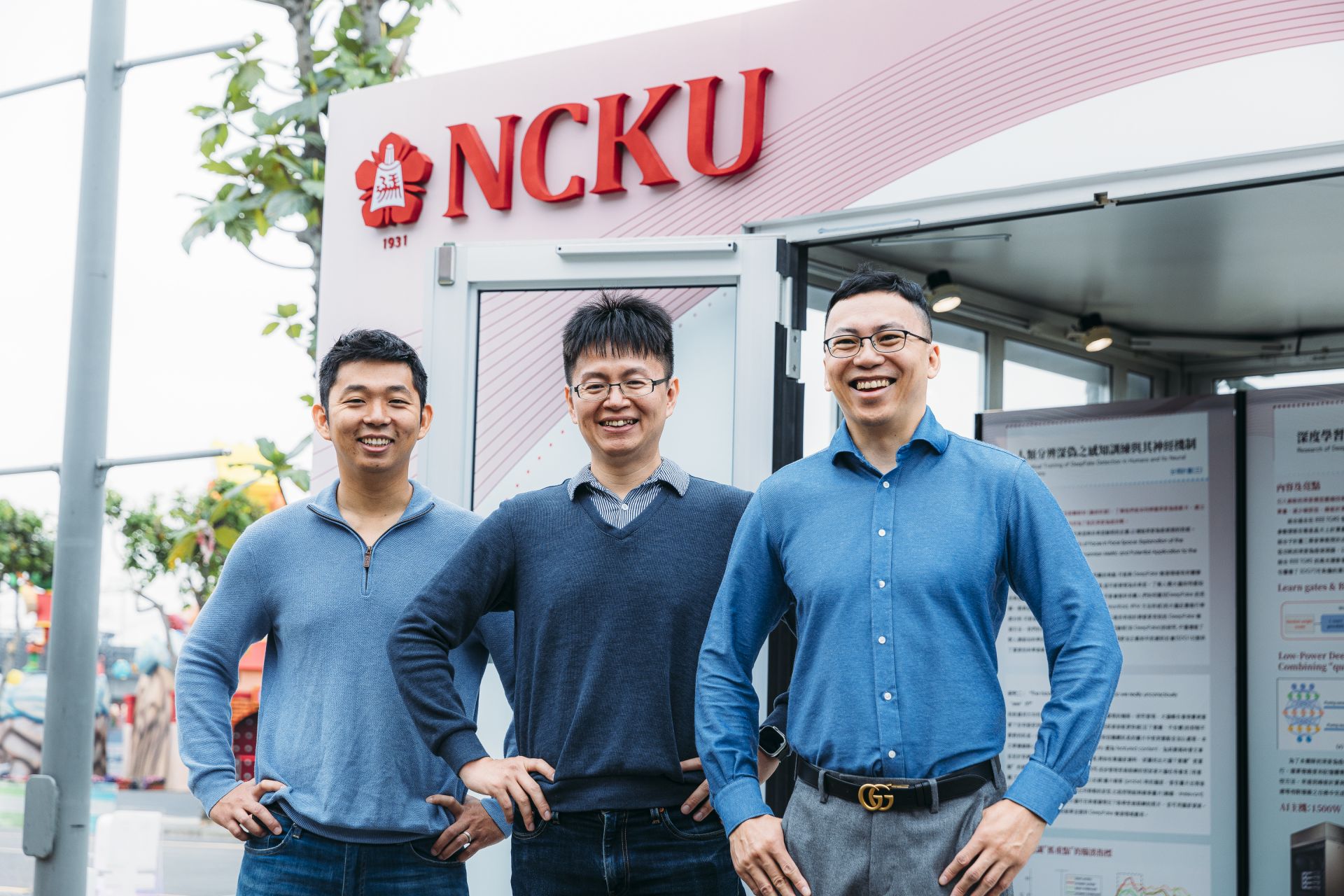SDG16
The Department of Law at NCKU Continues to Promote Community Legal Education for Elderly Rights Protection
The Department of Law at National Cheng Kung University, continuing the Ministry of Education’s “Legal Education Program for Primary, Secondary Schools, and Communities,” partnered with practical experts from the Tainan Land Administration Law Association to organize a six-part lecture series. The final session, titled “Preventing Land Use Fraud,” was held on September 20 in Ximei Village, Shanhua District. Through case studies and legal explanations provided by legal professionals, the program aimed to help community residents enhance fraud awareness and safeguard their homes and property.
The event invited former Kaohsiung District Court Judge, Lawyer Tsung-Hsing Shen, to share on “Common Land Use Fraud Practices,” covering cases such as buyers posing as genuine purchasers to seize properties, buying low and selling high for profit, and unscrupulous brokers colluding to manipulate prices. He advised the public to use “performance guarantees” and the “dual land administration system” when buying or selling property, and recommended applying for the “Real-Time Land Registry Notification” to reduce risks. Former Tainan District Prosecutor, Lawyer Chih-Ming Chen, analyzed scenarios of “illegal use of rented land,” including gambling operations, drug manufacturing, and illegal waste dumping. He warned that landlords who knowingly allow such activities on their property could be considered accomplices, while those unaware might still face lease termination, administrative fines, or environmental disputes. The case analyses and legal interpretations provided during the session allowed participants to gain a deeper understanding of legal risks and preventive measures.
The lectures attracted many local residents and seniors, with active participation throughout. Attendees expressed that the professional guidance helped them more effectively identify fraud traps and understand legal remedies, providing practical benefits for everyday life.
The Department of Law at NCKU continues to promote community legal education through lectures, services, and consultation arrangements. This approach not only enhances law students’ social service experience but also helps residents develop awareness to prevent legal risks. The six-part lecture series covered key topics, including the rights of the elderly, land division and inheritance, and fraud prevention. Associate Professor Wan-Ju Yeh, Acting Chair of the Department of Law, stated that the community legal education program embodies the core values of University Social Responsibility (USR). By applying legal expertise in social practice, it brings knowledge resources into the community, demonstrating high social care and professional service. This approach not only addresses residents’ urgent needs to face fraud risks but also strengthens local social protection.
The organizers hope that through the event, professional instructors’ in-depth explanations will help seniors and landowners understand legal responsibilities and risk prevention in land use, thereby enhancing community self-protection. At the same time, youth participants can gain public service and social engagement experience, fostering cross-generational interaction and trust. This model of “professional contribution to society and joint community protection” promotes the localization of legal culture, fulfills university social responsibility, and expands social impact.
The event invited former Kaohsiung District Court Judge, Lawyer Tsung-Hsing Shen, to share on “Common Land Use Fraud Practices,” covering cases such as buyers posing as genuine purchasers to seize properties, buying low and selling high for profit, and unscrupulous brokers colluding to manipulate prices. He advised the public to use “performance guarantees” and the “dual land administration system” when buying or selling property, and recommended applying for the “Real-Time Land Registry Notification” to reduce risks. Former Tainan District Prosecutor, Lawyer Chih-Ming Chen, analyzed scenarios of “illegal use of rented land,” including gambling operations, drug manufacturing, and illegal waste dumping. He warned that landlords who knowingly allow such activities on their property could be considered accomplices, while those unaware might still face lease termination, administrative fines, or environmental disputes. The case analyses and legal interpretations provided during the session allowed participants to gain a deeper understanding of legal risks and preventive measures.
The lectures attracted many local residents and seniors, with active participation throughout. Attendees expressed that the professional guidance helped them more effectively identify fraud traps and understand legal remedies, providing practical benefits for everyday life.
The Department of Law at NCKU continues to promote community legal education through lectures, services, and consultation arrangements. This approach not only enhances law students’ social service experience but also helps residents develop awareness to prevent legal risks. The six-part lecture series covered key topics, including the rights of the elderly, land division and inheritance, and fraud prevention. Associate Professor Wan-Ju Yeh, Acting Chair of the Department of Law, stated that the community legal education program embodies the core values of University Social Responsibility (USR). By applying legal expertise in social practice, it brings knowledge resources into the community, demonstrating high social care and professional service. This approach not only addresses residents’ urgent needs to face fraud risks but also strengthens local social protection.
The organizers hope that through the event, professional instructors’ in-depth explanations will help seniors and landowners understand legal responsibilities and risk prevention in land use, thereby enhancing community self-protection. At the same time, youth participants can gain public service and social engagement experience, fostering cross-generational interaction and trust. This model of “professional contribution to society and joint community protection” promotes the localization of legal culture, fulfills university social responsibility, and expands social impact.
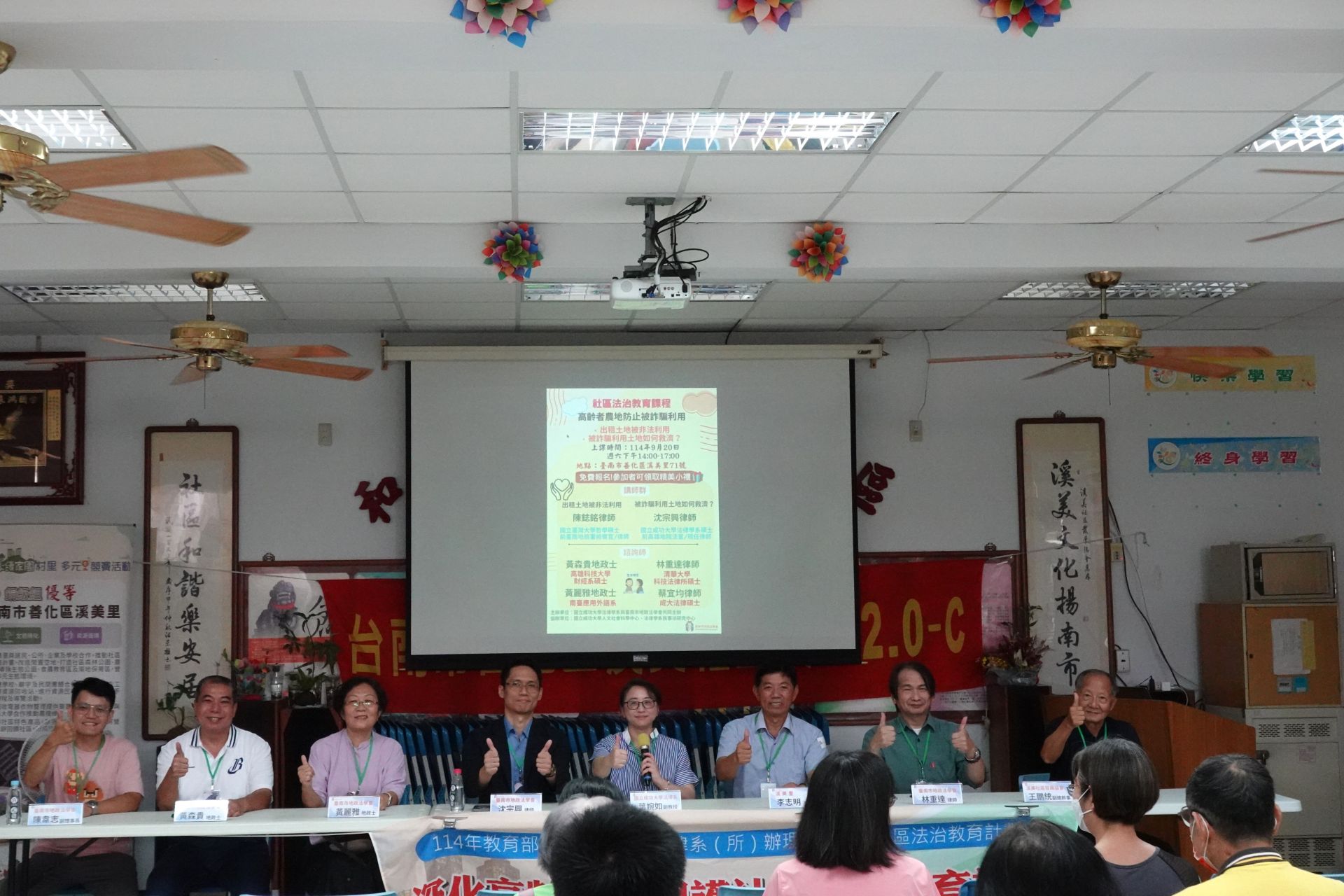
The Department of Law at National Cheng Kung University Continues to Promote Community Legal Education for Elderly Rights Protection, Successfully Holding the “Preventing Land Use Fraud” Lecture on September 20
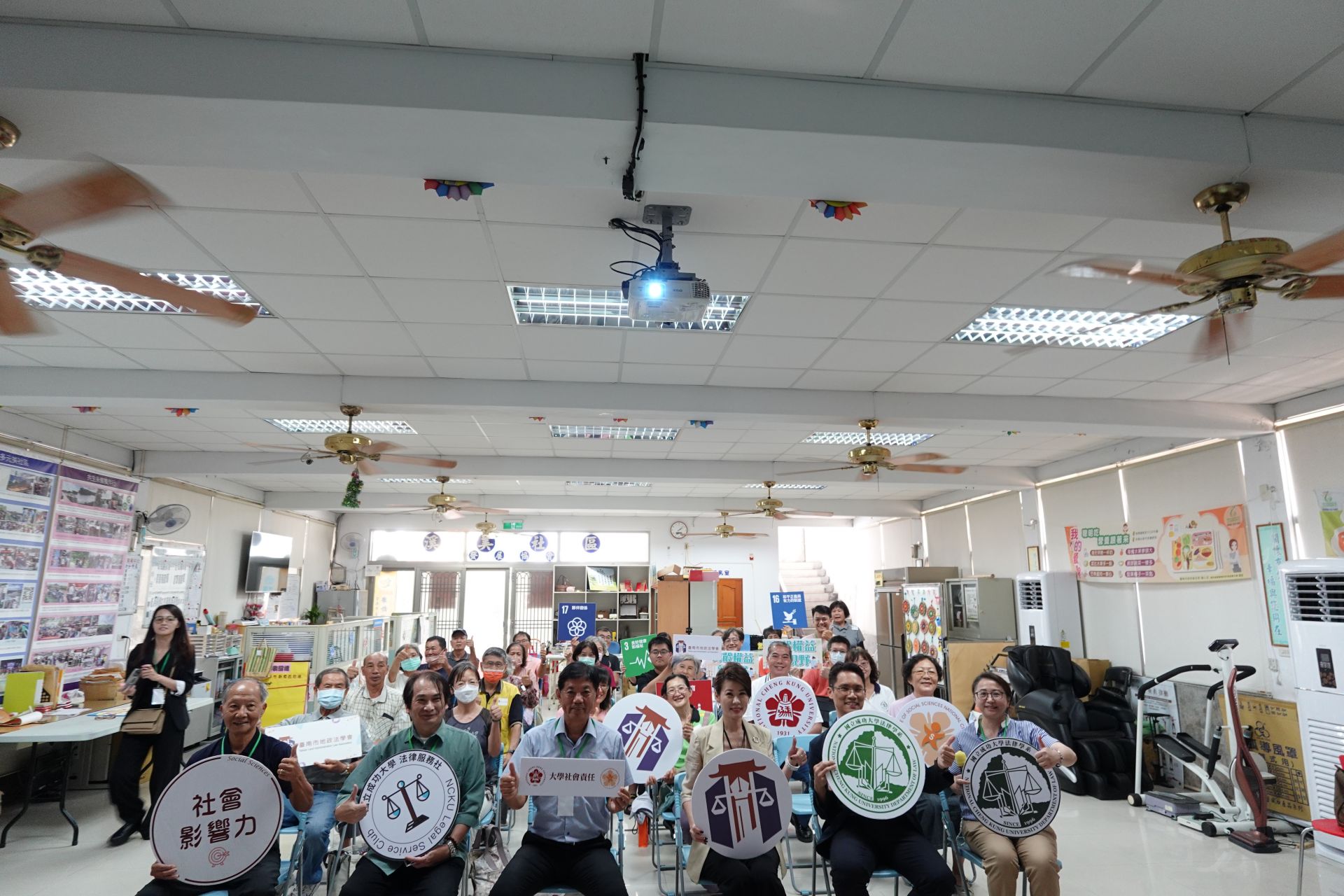
The Department of Law at National Cheng Kung University Continues to Promote Community Legal Education for Elderly Rights Protection, Successfully Holding the “Preventing Land Use Fraud” Lecture on September 20
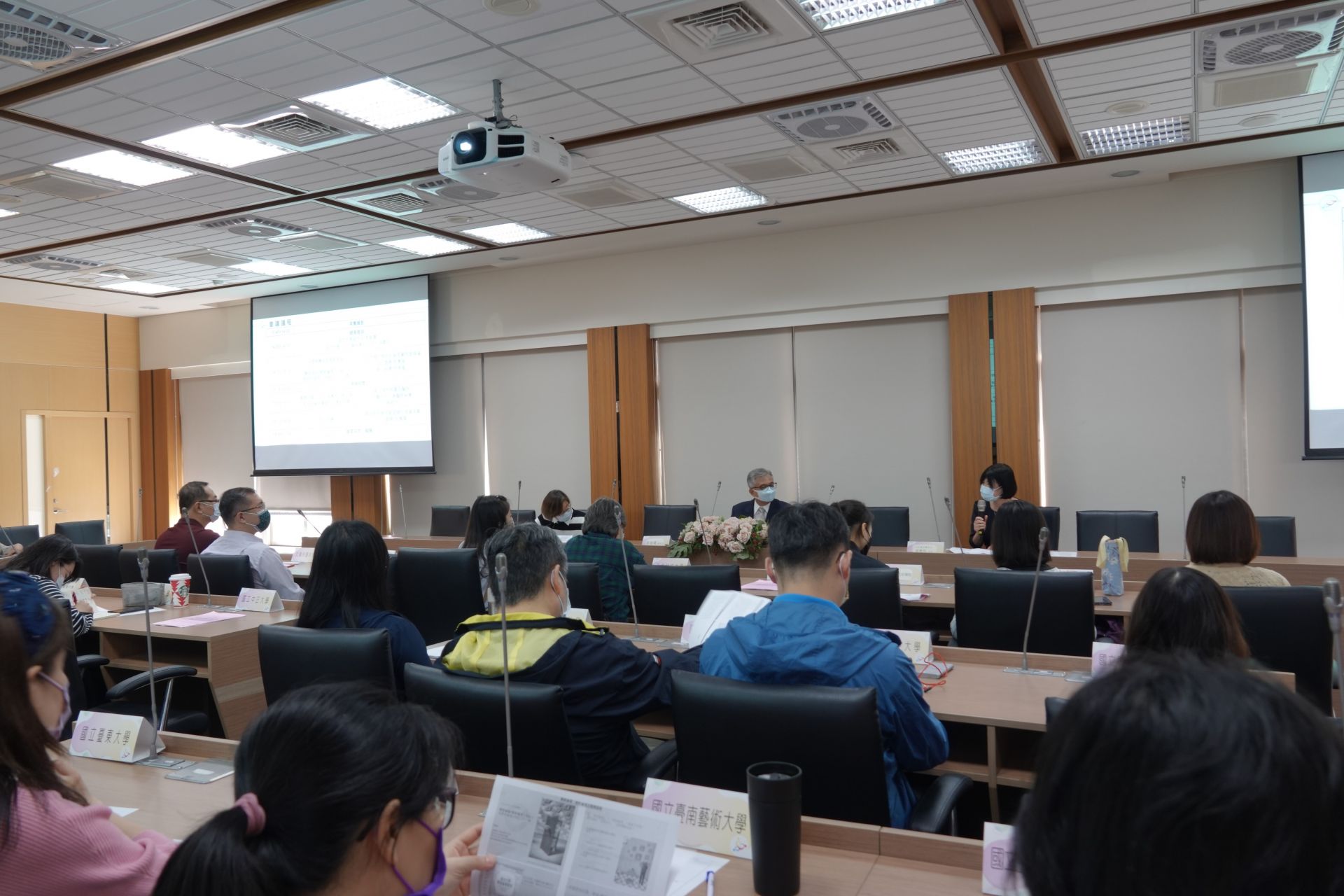
SDG16The Taiwan Southern Consortium of Universities for Human Research Ethics Meeting in NCKU
View more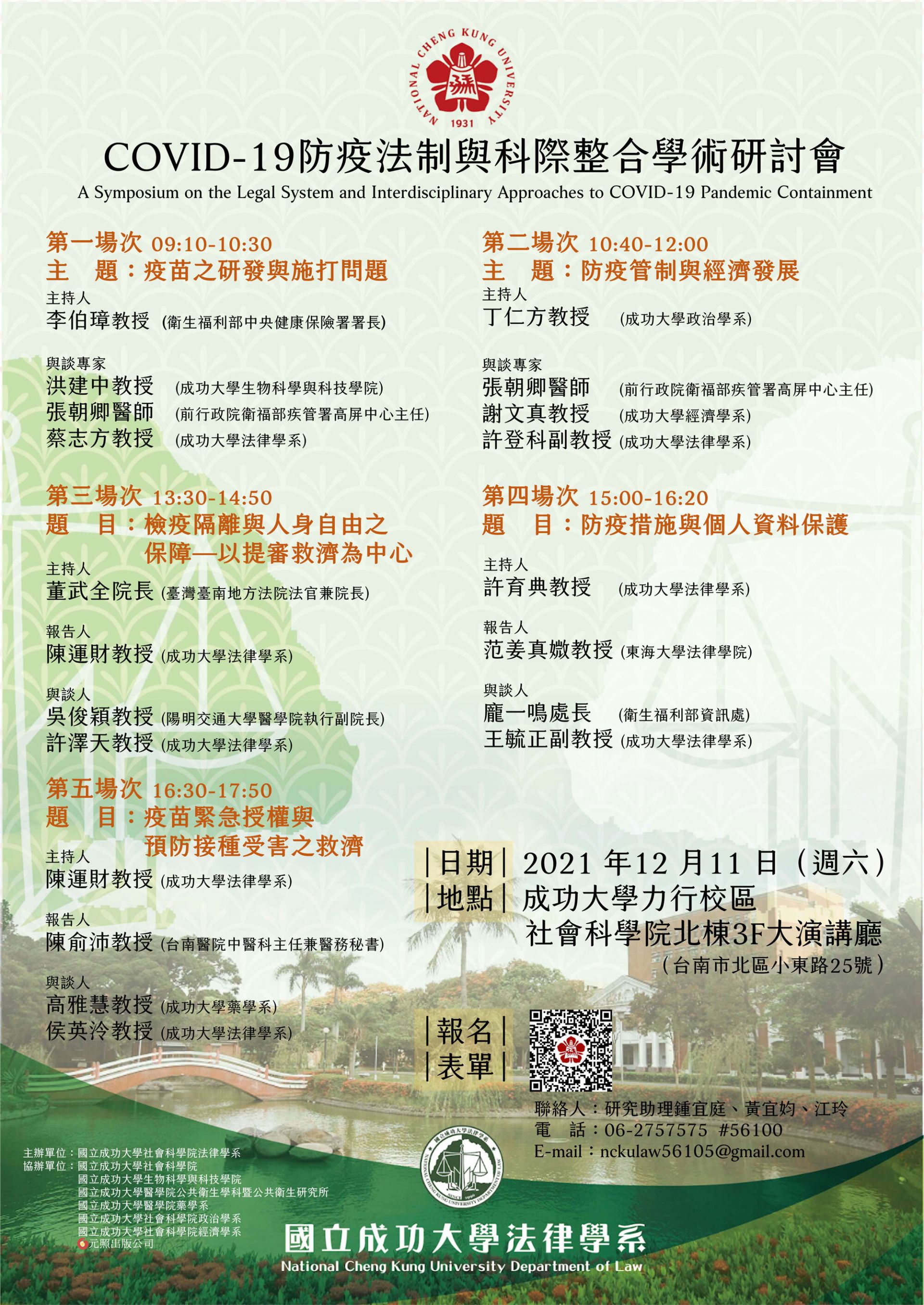
SDG16A Symposium on the Legal System and Interdisciplinary Approaches to COVID-19 Pandemic Containment
View more